A lesson on patience
It apparently took J.D. Salinger 10 years to write his first novel, The Catcher in the Rye. J.K. Rowling spent about 6 years writing and re-writing Harry Potter and the Philosopher’s Stone (I suspect publisher pressure accelerated things thereafter). As an early career researcher, I feel that since graduating from my doctorate and becoming independent, I can be less patient and eager for instant results – a feeling encouraged by social media and continuous metricisation.
My own current project, inspiratory muscle training for care home residents at risk of falling, can’t be compared to great achievements like those novels. But it is my ambition to undertake my own research project as principal investigator – and so I intend to savour the experience (i.e. be task oriented), rather than just chasing the outputs (i.e. being outcome oriented). I have learned to value iterative research designs, in that, the initial study’s outcomes inform the subsequent study’s methodology, and so on. However, this method presents its own uncertainties, as the researcher has to relinquish their control over the study.
Several lessons on managing myself
That said, I am beginning to see the need to set regular targets to keep the momentum on a project like this going. Taking my research beyond the controlled ‘safety’ of the physiology laboratory (satisfying internal validity), into a brave new world of the care home setting (satisfying external validity), requires working with research ‘end users’, be it: service managers, staff or residents. I’m finding the process: i) slow, care providers have additional administrative requirements, ii) essential, in laying trusted foundations for a long-term project, and iii) rewarding, by implementing research into the real world and establishing impact from the outset.
Since being awarded ACORN funding, my summer has been spent: writing for ethical approval, satisfying HR admin, recruiting care home partners, revising protocols, creating Plan B, writing Plan B ethical approval, piloting testing, revising participant selection criteria, and being trained by my PhD student (a lesson in humility, if nothing else). Even supported by an industrious research assistant this has felt a slow journey, with weekly peaks and troughs. I have even begun an 8 week period of inspiratory muscle training myself, to understand how care home residents can improve, feel challenged, and require further support. This has been equally useful to highlight practicalities – my challenges have been fitting 30 breaths, morning and night, into my daily routine; in contrast care residents’ challenges are likely to relate to effort, guidance, and motivation for training.


Research is an intellectual and logistical marathon
My initial participant selection criteria excluded all people with: dementia, COPD and respiratory difficulties, and cardiovascular diseases. My journey has presented three worries thus far: i) the funding expenditure deadline, ii) recruiting care homes and, iii) the selection criteria. In academia, the deadlines, targets and metrics are omnipresent, arguably more so since the increase in tuition fees.
Following the joy of being awarded research funding, comes the deadlines of expenditure (simple, if it were not for standard processes – ethical clearance, securing HR contracts, recruitment, and piloting) and the deliverables. I’m highly grateful of the ongoing support I receive, however I strongly believe that HE institutions must be realistic when financing projects and staff. Research is a slow process; outcomes cannot always be constrained to exact dates, as much as quality research cannot be established in rushed expenditure.
Mostly recently my challenge has been in recruiting care homes, particularly due to my selection criteria. This presents the methodological conflict between internal validity (i.e. the controlled laboratory) and external validity (i.e. the unpredictable care environment). Should I maintain my exclusion criteria, even though the majority of care home residents have dementia and/or COPD? Or relax the criteria to reflect the real environment and achieve recruitment? The former would make for more publishable data; the latter would support a Research Council funding bid (ah, I nearly forgot…must submit one of those by April 2019). Again, tempus fugit.
Self-experimentation
In this this social media age, time can appear condensed; two days can seem like an age, an afternoon of no replies, an epoch. A study in the 2017 Altmetric Top 100 provides compelling evidence that regular Smartphone use impairs cognitive performance by re-orienting attention. I’ve ‘disconnected’ from using a Smartphone and Facebook; this works for me. Regardless, I still have to exercise discipline in unnecessary email checking and now time-block my diary for: education, research or practice. I seriously recommend, as an academic, experiment on yourself. J.B.S. Haldane was a notable and prolific example of a self-experimenting physiologist. Yet whether it’s inspiratory muscle training or reducing Smartphone use, experiment on yourself – assess how you respond, identify influential variables and intervene if you wish.


How my ACORN grows
The simple truth is I don’t have a study finish date. The logic is if I am flexible on time, and put lots of my own effort in, then I will ultimately be able to generate both output and impact. There’s the psychological advantage too: by not having a finish date, I also stop the project becoming ‘work’. Pressures, missed opportunities, worrying others are publishing – these would stop research being fun. Academic success is not proportional to effort alone, however developing partnerships beyond academia is.
Being an academic is great – relative freedom, interesting colleagues, working with students, and contributing to societal value. Personally I’m not sure I’ll ever stop worrying, nevertheless, I have learnt to expect challenge on a near daily basis. This is notably relevant for the early career researcher looking to develop into an independent researcher, capable of sustaining their own work. Academia will always have a mountain to climb. I learnt to relax, stop worrying and love research by:
- Indulging in ‘quiet time’ – think, talk and share ideas
- Accepting failure
- Avoiding perfectionism
- Prioritising – day by day, week by week, time-block based on what tasks arise
- Avoiding distraction – e.g. social media detox / only read emails after late morning

Dr James Gavin
Dept. Sport & Physical Activity
Faculty of Management
Email jgavin@bournemouth.ac.uk
Phone 012029 66303

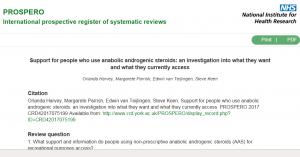
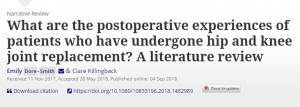
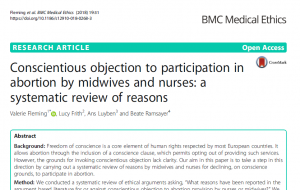
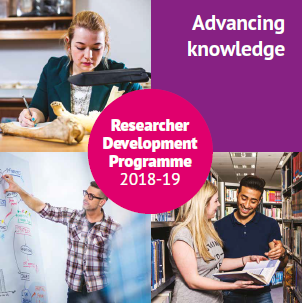

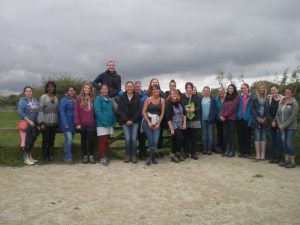
 The ESRC has announced funding opportunity for a new phase of its National Centre for Research Methods (NCRM), which is an exciting opportunity for a team to develop and deliver a strategy for methods training and capacity-building in the social sciences. The team will be responsible for :
The ESRC has announced funding opportunity for a new phase of its National Centre for Research Methods (NCRM), which is an exciting opportunity for a team to develop and deliver a strategy for methods training and capacity-building in the social sciences. The team will be responsible for :

















 FHSS academics teaching in Nepal
FHSS academics teaching in Nepal New weight change BU paper
New weight change BU paper One week to go! | The 16th Annual Postgraduate Research Conference
One week to go! | The 16th Annual Postgraduate Research Conference Geography and Environmental Studies academics – would you like to get more involved in preparing our next REF submission?
Geography and Environmental Studies academics – would you like to get more involved in preparing our next REF submission? Congratulations to three former BU staff
Congratulations to three former BU staff MSCA Staff Exchanges 2024 Call – internal deadline
MSCA Staff Exchanges 2024 Call – internal deadline Applications are now open for 2025 ESRC Postdoctoral Fellowships!
Applications are now open for 2025 ESRC Postdoctoral Fellowships! Horizon Europe – ERC CoG and MSCA SE webinars
Horizon Europe – ERC CoG and MSCA SE webinars MaGMap: Mass Grave Mapping
MaGMap: Mass Grave Mapping ERC grants – series of webinars
ERC grants – series of webinars